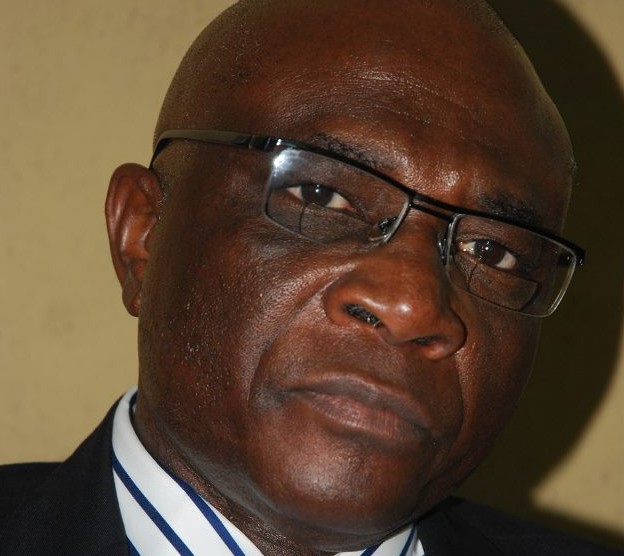How Journalists Pushed Out IBB, Abacha Regimes – Bayo Onanuga
Bayo Onanuga, the Special Adviser to President Bola Tinubu on Information and Strategy, has revealed how his efforts and those of some other journalists were instrumental to ending the military regimes of former dictators – Ibrahim Babangida and the late Sani Abacha.
Onanuga disclosed this in a programme titled ‘Mic On Podcast’ hosted by Channels TV presenter, Seun Okinbaloye. The video was released on Saturday.
Babangida ruled Nigeria as a military dictator for eight years from 1985 to 1993 before Nigerian statesman, Ernest Shonekan succeeded him as the Head of the Interim National Government.
Shonekan’s interim government would later be toppled by the emergence of Abacha, who ruled from 1993 to 1998 before his death.
The presidential aide and a former media executive worked as an editor at the defunct African Concord magazine before founding TheNews magazine.
In his interview, Onanuga stated that his efforts, alongside others, were to help put the nation on the right path and pave the transition from military rule to a democratic system of government.
He recalled that they (journalists) began to question the ills of society during his time as an editor at the African Concord magazine, saying, “At that time, my journalism was centrered on looking at people at the centre point of issues rather than just looking at issues.
“So, if Babangida was messing up in those days, we tried to question him, not looking at issues.”
Onanuga added, “What we were doing in those days, we were trying to make sure that this country is put on the right path. That we were fighting for democracy, for the rights of all Nigerians, and at that time, we were ready to lose our own convenience and everything to make sure that this country was well-governed.”
He noted that instead of the military, it was better “for us to have people that we elect out of our own free will and not for soldiers because they have the guns to govern our people.
“That was all we were doing at that time.”
When asked if he thought his aim was achieved as a journalist, then the presidential aide said, “Of course. I think at the end of the day when the military left power, even when Babangida left power in 1993, I think we were very happy that at least we succeeded in pushing him out.
“And when Abacha took over and we found that he wasn’t ready to allow democracy to reign, we also began a new round of struggle, and when he died, we were very happy that he died,” noting that before Abacha’s death, some journalists, including himself had to run away, saying, “We came back to our country to continue to play our roles to make sure that this country enthrones democracy.
“And I think as a journalist, because of the crusade that we fought for at that time, I think I’ll say our crusade succeeded.”
Meanwhile, Onanuga also said he quit his work as an editor at the defunct African Concord magazine owned by the late business mogul and politician, Chief MKO Abiola, he disagreed with his former boss on a publication titled ‘Has Babangida given up?”
Onanuga stated that “it was a people-centrered journalism that we were doing, so trying to focus on issues but focusing on them through the people who are in charge.
“Let’s say now, we have a problem of guinea worm like it used to happen in those days. We aren’t just looking at guinea worm as a disease, we’re looking at the people who are in charge of our health, people who are in charge of water and things like that, and we really began to question them.”
The presidential aide owed his exit from the magazine to his criticism of Babangida’s regime after the dictator “declared in 1992 I think, what actually led my leaving Concord and said he couldn’t understand what was going on in the country, that the country had defied all kinds of treatments that he had tried to employ on Nigeria.”
“What kind of leader was this?” Onanuga queried, adding that he said Babangida “had no business to govern Nigeria” if his measures were ineffective in developing the nation.
“Of course, he didn’t like what we did. And when my boss said I should apologise, I said no, there’s no point in apologising. I said I won’t apologise, I’ll rather just go,” he stated.
Onanuga added that upon leaving the media house, it degenerated into a chain of exits, saying, “And when I left, many of my colleagues also left with me.”
He noted that the exit “led to our founding TheNews magazine in 1993.”
Whether he (Onanuga) regretted not apologising to the former military dictator, he said, “You see, the point is this. If you believe very much in something, even at the risk of your life, it’s better you stick to it.
“When you try to appease people who have power, you’re going to lose much more. So, it’s better to have some dignity,” adding that it pays him to walk away rather than “sacrifice” his values to “gain some advantage.”
Onanuga recalled that he told Abiola not to “appease power,” saying, “If you appease power, once you do it, they will ask for more. You keep appeasing, appeasing, appeasing, and then you find out that you’ve lost everything totally.”
The presidential aide also recalled that whenever he was arrested by military operatives or the Department of State Services, they looked at him as a gentleman upon sight.
“When people see me, they see a different person from the image that people sometimes ascribe to me. When they see me, they say, “Oh! He’s a gentleman.’





